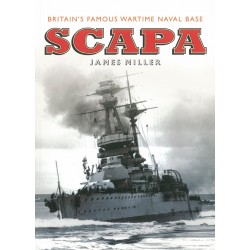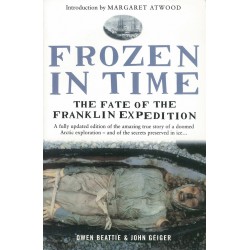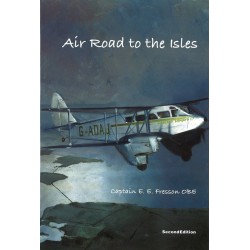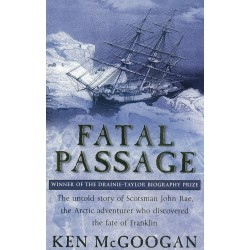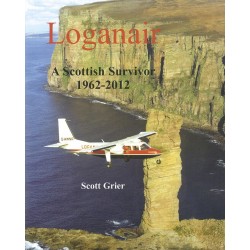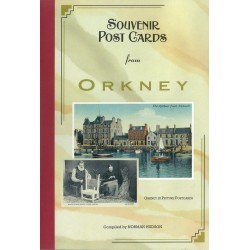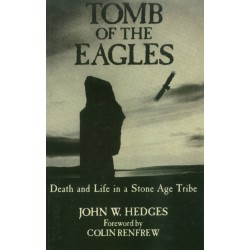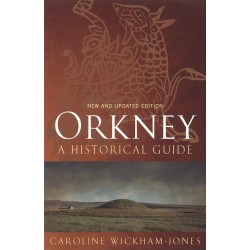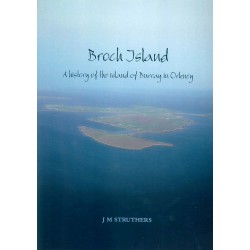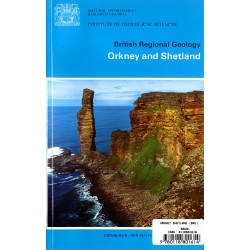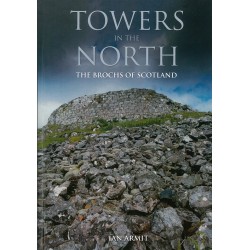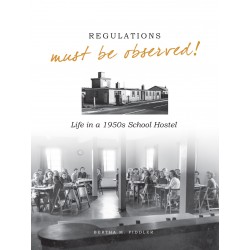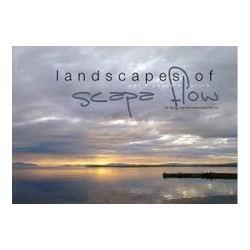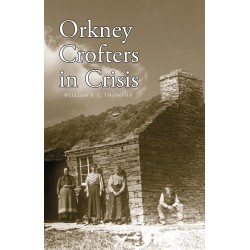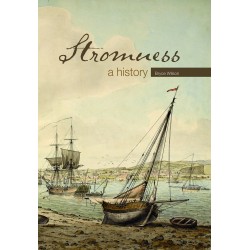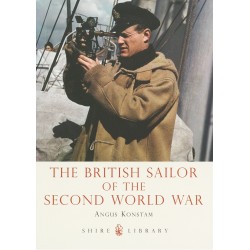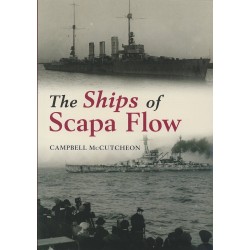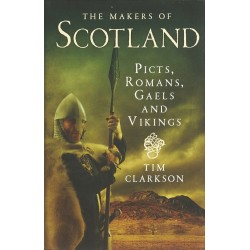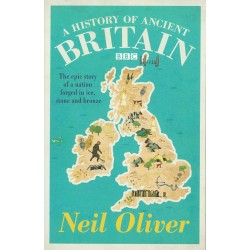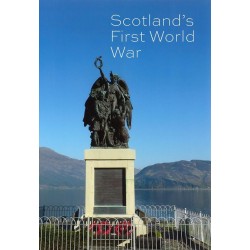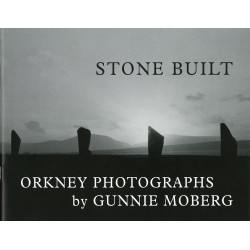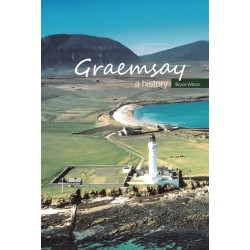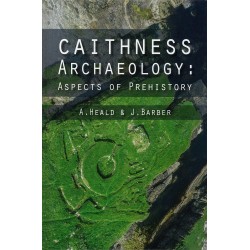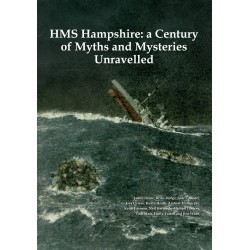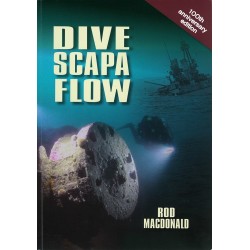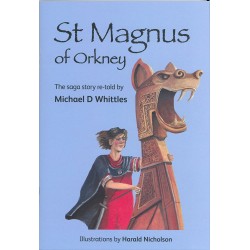No products
Orkney History
- Latest Releases
- Signed Copy Event Pre-orders
- Orkney Guidebooks, Travel Books & Maps
- Calendars, Gifts & Souvenirs
- Orkney Christmas Cards
- Orkney Fiction, Poetry, Folklore & Myths
- George Mackay Brown
- Children's
- Local Author - non-Orkney Related Titles
- Orkney Life, People & Places
- Orkney History
- Maritime
- Photos, Art, Music, Food & Sport
- Nature
- Shetland Books & Maps
- Sale
- 'The Orcadian' Subscriptions
Viewed products
-

Orkney in Wartime 'The...
The first of a two-volume work outlining the...
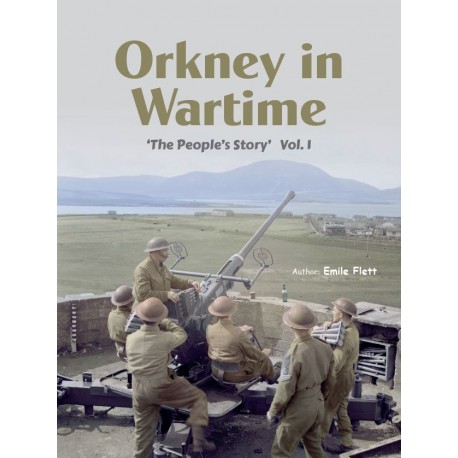 View larger
View larger
Orkney in Wartime 'The People's Story' - Vol. 1
9781912889280
New product
The first of a two-volume work outlining the impact of war on everyday life in Orkney.
By Emile Flett.
Hardback.
Add volume one and volume two to your basket and get 15% off!
- Remove this product from my favorite's list.
- Add this product to my list of favorites.
More info
Orkney in Wartime’ is a two-volume work outlining the impact of war on everyday life in Orkney. Between 1939 and 1945 Orcadians experienced changes to their lives that even the renowned Orcadian ‘hids hid’ attitude found challenging at times. Who would have thought a German plane would land in a field in Sandwick or army vehicles would be on manoeuvres amongst the stones of the Ring o’ Brodgar?
Volume 1 describes the military preparations for war as army camps and airfields sprung up around the islands and young men were ‘called up’ to serve in the Forces. The sinking of the Royal Oak and bombing raids brought home the grim reality of war whilst the possibility of invasion led to the creation of the Home Guard in preparation for the onslaught that many felt was sure to come.
The tsunami of people that came to Orkney sparked an economic boom and the ‘friendly invasion’ led to friendships that were to last a lifetime. Many local activities were stopped but in their place Orcadians had access to entertainment way beyond any pre-war expectations. However, a negative side of the population boom was the explosion in crime which Orkney’s police force struggled to deal with throughout the war years.
Extracts from diaries, documents, newspapers and photographs all add to the ‘story’ of those living and working in Orkney during the Second World War.
Orcadians adjusted to the wartime regulations and carried on with their lives in the changed circumstances. Orcadians were not just onlookers to all that was going on around them -- they were heavily involved in the war effort, from working for the Red Cross to involvement in the large ‘War Week’ fund-raising campaigns.
'Much has been written about Orkney’s role in the Second World War, like Bill Hewison’s classic ‘This Great Harbour Scapa Flow’, covering the war at sea, Gregor Lamb’s ‘Sky Over Scapa’ saw the war take to the air, while Virginia Schroder’s ‘Bloody Orkney’ dealt with the service personnel stationed in Orkney. But now there is a book that focuses on the civilian population of Orkney and how the war turned their lives upside down. ‘Orkney in Wartime: The People’s Story Vol I’ by the well known and well respected historian, Emile Flett, is a valuable contribution to the above mentioned books (and many more that have been written on the subject). Here Emile looks at how the war impacted on the lives of the ordinary Orcadians who found themselves caught up in a world-wide calamity. There is sometimes an assumption that the war brought prosperity to the islands, which is true to an extent. But it also brought a negative, darker side, and not just because of enemy attacks.
Emile covers the build-up to the war and the restrictions that it brought, from blackouts to identity papers needed for leaving and entering the islands. Land was requisitioned by the War Office for military aerodromes, accommodation camps and defences. With the influx of civilian workers, who were working on military projects, and the armed forces that far outnumbered the population, it was inevitable that crime would increase. Here Emile shows us just how sharply the crime rate soared, right from the beginning. The small Orkney Police Force (just nine men and a few special constables) struggled to deal with it. With little to do in the evenings but drink, most of the arrests were for brawling and being drunk and incapable. But there were also thefts, sexual assaults and even murder. Orkney civilians were also finding themselves in trouble for breaching the strict blackout laws, with fines being issued. Emile also looks closely at the air-raids, including the attack on the Brig o’ Waithe houses that led to the death of James Isbister. Random attacks saw local folk rushing to the nearest air-raid shelter, hastily erected at the beginning of the war. Mines washed ashore also proved a constant danger, while two boys were killed when they found an explosive device on a beach. While the sinking of HMS Royal Oak is touched upon, it has been dealt with in many other publications, so the focus here is on the civilian involvement and reaction.
The formation of the Local Defence Volunteers (later renamed The Home Guard by Churchill) is covered in some detail. It is interesting to read that inter-parish/island rivalries were exploited to boost volunteer numbers. One parish or island didn’t want to be outdone by another! It was also a revelation to discover that Hitler had declared that all Home Guard soldiers captured would be instantly executed, as a terror organisation. How ironic that he would recruit old men and small boys to defend Germany at the end of the war. The relations between the Orcadians and the ‘Friendly Invasion’ was not all negative. Many troops found a welcome by an Orkney fire, with bannocks, butter, cheese and a highly valued egg for supper. Many friendships were made and continued for life. The entertainment that came to Orkney was also shared with the local population, from concerts and films to a pint in the local canteen.
This is volume one in a two volume edition. The book is highly readable (I couldn’t put it down) and despite the seriousness of many of the subjects, Emile has managed to bring in humour to lighten the mood at appropriate times. I can highly recommend this book as an essential addition to Orkney’s bookshelves, and also to people who are interested in wartime history and the home front. It is meticulously researched (many hours in the archives has gone into this) and it is a real credit to Emile. I can see this ending up in a few Christmas stockings and being a very welcome gift.'
Tom Muir
30 other products in the same category:
-
Scapa: Britain's Most Famous Wartime Naval Base
The story of this remarkable place, weaving together history, eyewitness...
-
-
-
-
Loganair: A Scottish Survivor 1962-2012
Of all the airlines in the UK, the oldest name in continous use is that of...
-
-
Tomb of the Eagles: Death and Life in a Stone Age Tribe
The remains of our neolithic ancestors found at Isbister give us an amazing...
-
-
-
Orkney and Shetland: British Regional Geology
Orkney and Shetland by The Institute of Geological Sciences.
-
-
Regulations Must Be Observed!
Life in a 1950s School Hostel as remembered by Bertha M Fiddler. Paperback.
-
Landscapes of Scapa Flow
Landscapes of Scapa Flow War - Peace - Nature By Tom Muir and Scapa Flow...
-
Orkney Crofters in Crisis
An intriguing snapshot of crofting life in the county 130 years ago through...
-
-
The British Sailor of the Second World War
This book tells the dramatic story of how the Royal Navy transformed ordinary...
-
The Ships of Scapa Flow
The story of the ships of Scapa Flow, their sinking and their salvage, using...
-
-
A History of Ancient Britain
The epic story of a nation forged in ice, stone and bronze. By Neil Oliver....
-
-
Scotland's First World War
Exploring the people and places that played an important role in the war...
-
-
Between the Tomb and Cist
The funerary monuments of Crantit, Kewing and Nether Onstan. By Beverly...
-
-
-
-
HMS Hampshire: a Century of Myths and Mysteries Unravelled
Twelve authors with local knowledge pool their expertise to sort fact from...
-
What The Architecture Tells Us
An experiential journey to our Neolithic roots, as found in the Orkney...
-
Dive Scapa Flow: 100th Anniversary Edition
Completely rewritten, updated and expanded edition of this classic dive...
-


